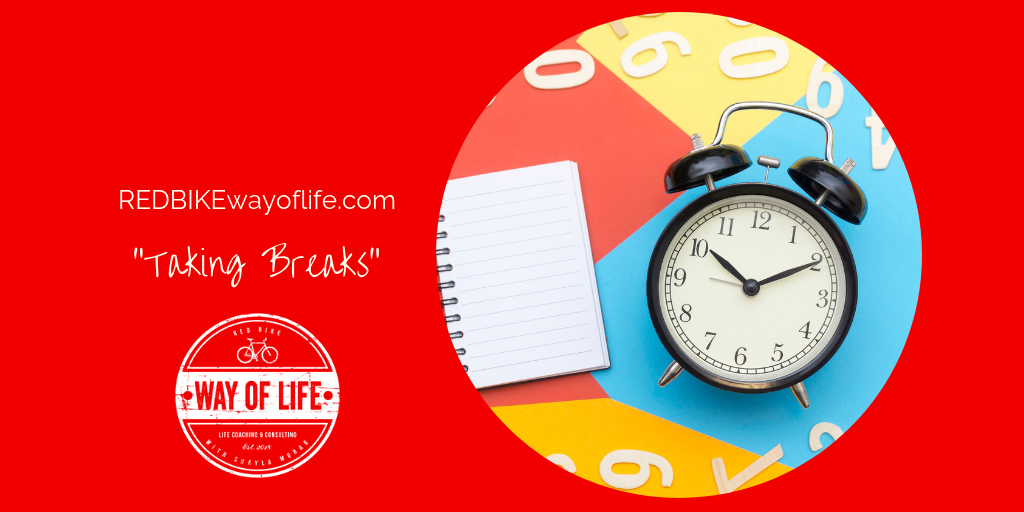
by Shayla Morag | Nov 15, 2019 | Balance, Cutting Clutter, Professional Organizing, Stress Management, The Red Bike Way
We know it to be true. An organized space just feels better. The mind seems calmer and dealing with life a lot more doable. Goals seem easiest to reach and everyday mundane tasks not such a drudgery. Professional organizing is a helpful service which I am now offering clients. When I would talk to clients about striving for a dream, the conversation quite often revolved around the feeling of just being overwhelmed and stuck due to having too much “stuff” (material and emotional). I truly get it and have been on my own personal journey of purging unwanted and unnecessary “stuff” to move forward and feel lighter for many years it seems.
Since I was young, I have been organizing rooms from head to toe. My Mom would go out for a meeting and return to a newly designed space. When I have gone through transitions, I tend to “shift” my environment as well. I love the feeling of starting fresh. Friends who have been in my life for a long time always know that I have been through “something” by everything being flipped and rearranged.
Keep connected for more details about #theREDBIKEway Method of Professional Organizing. More to come!

by Shayla Morag | Sep 16, 2019 | Comfort, Handy Tips, Self Care, Sleep, Stress Management, The Red Bike Way
When faced with a bad day, do everything you can to make the most of it. At the very least, avoid making it worse. A bad day doesn’t mean you should just throw in the towel. You only have so many days left, so take full advantage of each one. You can accomplish something worthwhile, no matter how bad of a day you’re experiencing.
Survive a bad day and make the most of it:
1. Avoid behaviors that make a bad day even worse. Complaining, overeating, yelling at a coworker or loved one, or drinking are just a few ways to potentially make a bad day worse. Why throw gasoline on the fire? Keep your wits about you and hold on. Tomorrow is a new day. It might be your best day ever.
2. Maintain your perspective. Maybe your boss hates your report, but it beats the heck out of living under a bridge. No matter how bad your day is, it could be a lot worse. And many are faced with far worse each and every day. Things will get better.
3. Meet with a friend for dinner. People love drama as long as it isn’t their own. Your friend would love to hear about your bad day over a delicious dinner. You can tell your story and unburden yourself, all while enjoying your favorite restaurant.
4. Remember that it’s just one day. You can handle one bad day. You’ve already successfully survived many in the past. Finish the day but look forward to tomorrow. Things can only get better, right?
5. Avoid making any important decisions. A bad day isn’t the best time to decide to quit your job, give up on your dream of law school, or end a relationship. All of those things can wait until your mood and circumstances have normalized. Again, avoid doing anything that can make your crummy day significantly worse.
6. Make plans that excite you. Decide to get away for the weekend or buy that new iPod you’ve been eyeing for the last few months. Give yourself something to look forward to in the near future.
7. Learn a lesson. Is there anything you did to cause your bad day? Could your rough day have been prevented? Can you learn anything from this experience? A rough day isn’t so bad if you learned something useful from it. Make the best of it.
8. Breathe. Unless you’re underwater, breathing is always a good idea to relieve tension and regain control of your emotions. Just breathe and get your work done. Completing everything that needs to be done is more challenging when everything seems to be going wrong, but you’ll feel more satisfied at the end of the day if it wasn’t a complete loss.
9. Take a nap. Sometimes you can reset your day and your brain by taking a quick nap. Maybe you’ll see your situation in a new light. A nap also provides a needed break.
Deal with your bad days effectively. When you’re experiencing a bad day, focus on survival and completing the most important tasks. Most importantly, avoid using a bad day as an excuse to do something stupid or you might find that it can get worse. Follow these strategies and you’ll get through your rough days in the best ways possible.

by Shayla Morag | Jun 18, 2019 | Balance, Meditation, Mindfulness, Self Care, Stress Management, The Red Bike Way
The Western world views breaks as a tool to promote laziness. But your effectiveness and efficiency will improve if you take regular breaks. You can work more intently and for more hours each day if you’ll give yourself a break at least once per hour. You won’t just get more done, you’ll be happier and less stressed, too.
Learn about the following 7 advantages of taking breaks:
1. You’ll get more done. Try a little experiment at work. First, spend a day attempting to do nothing but work for the entire day and note how much you accomplish. The following day, focus on your work for 30 minutes and then take a 5-minute break. Notice how much more you accomplish.
This applies to physical activities as well. Studies have shown the average marathon runners actually complete the race faster and more comfortably if they take regular walking breaks of up to a mile each.
2. You’ll feel much better at the end of the day. While performing the previous experiment, notice how you feel physically and mentally at the end of the day. You’ll feel nearly as good at the end of the day as you did at the beginning if you take breaks. Without breaks, you’ll feel exhausted.
3. The quality of your work is improved. The ability to focus is limited. Your mind begins to wander at some point. The quality of your work is compromised when your focus begins to wane.
Taking regular breaks is an effective way to ensure the quality of your work doesn’t suffer.
4. Breaks provide opportunities for evaluation. It’s important to regularly assess if you’re working effectively. If you put your head down and never look up, you can find yourself lost in the weeds. A break is an opportunity to re-evaluate the situation.
5. Taking a break can lower your stress. It’s important to intermittently disengage from any activity that causes stress. Your ability to work is compromised as your stress rises beyond a certain level
6. Breaks help to prevent boredom. Studies suggest that it’s more effective to regularly disengage and reengage with goals rather than focusing on them for long periods of time. The same idea applies to your work. Avoid spending too much time on one task before taking a break. You’ll maintain a higher level of interest in your work.
7. You can use your breaks to get other things done. Imagine how much you can accomplish with 8 or more 10-minute breaks each day. You could spend those 10 minutes performing an exercise or two, meditating, staying in contact with friends and family, tidying up, paying bills, or practicing the violin.
A break is a change in activity. Breaks don’t have to be spent daydreaming, though that’s not a bad way to spend a break.
You might be wondering how long a break should be and how frequently they should be taken. Science has an answer. For most people, the ideal break schedule is a 5-minute break every 30 minutes or a 10-minute break every 60 minutes. It can also be helpful to take a longer break every 2-3 hours.
Try a few different schedules and see what works for you. As a general rule, tasks that require more brainpower or muscle power require more frequent breaks.
Breaks are enjoyable way to add hours to your day. Your output will increase and you’ll also enjoy your free time more since you won’t be exhausted. Give yourself a break today and enjoy the many benefits taking regular breaks provides.

by Shayla Morag | May 14, 2019 | Balance, Handy Tips, Self Care, Stress Management, The Red Bike Way
Do you have so much going on that you feel overwhelmed? A busy life with too many demands can lead to feeling overwhelmed and stressed. Work, family, and other obligations can prove to be too much at times. Working even harder to rectify the situation seems unreasonable when you feel as if you’re already working at full capacity.
Just remember that you’ve felt overwhelmed in the past and made it through to the other side. Things get better.
Minimize your feelings of overwhelm and stress with these 10 strategies:
1. Take a deep breath. Once you start to feel overwhelmed, things tend to go downhill quickly. Give yourself a break by relaxing, taking a deep breath, and slowing down your brain. Scan your environment and describe it to yourself. It will disengage your mind from your stressors and bring it back to reality.
2. Focus on what you can do. In any situation, there are things you can control and things you can’t control. Keep your focus on those things within your influence.
3. Let go of those things that are out of your control. There’s no reason to think about it and get yourself more agitated if you can’t do anything about it. Learn to let go of anything you can’t influence.
4. Focus on solutions. Most of us make the mistake of focusing on the problem and imagining negative outcomes. This strategy decreases your capability and causes even more stress. If you’re going to put your brain to work, use it to find the best possible solution!
Ask yourself what you can do to eliminate or lessen the sources of your stress. Write down your ideas.
5. Avoid making assumptions. Are things actually as stressful as you think they are? Is it possible that you’ve misinterpreted the facts or made poor assumptions? Gather all the facts before deciding if there’s a reason to be overwhelmed. Question your judgment and ensure that you’re on solid ground before hitting the panic button
6. Give yourself a change of scenery. Get out of the house and the office for a few hours. Your environment affects your perspective. Spend some time in nature if possible.
7. Spend time with a friend. Go out for pizza and movie with a good friend. Rely on those in your social circle for advice, comfort, and a quick distraction. Which of your friends is best at making you feel better?
8. Take part in a relaxing activity. What relaxes you? Lying on the couch with your headphones? Going for a run? Getting a massage? Spend an hour or two decompressing and you’ll feel better.
9. Cut down on your obligations. Maybe you’re trying to do too much. Consider limiting the number of activities you participate in. Are you taking on too many responsibilities at work?
Consider which of your obligations are most important and get rid of the rest.
10. Remember when you’ve been overwhelmed in the past. You survived. In fact, you might even laugh today about how stressed you were back then. Hindsight is 20-20. Consider that you’re likely to feel the same way in the future regarding your current situation.
Slow your mind and take a deep breath when first faced with feelings of overwhelm. Try to maintain an objective perspective. It’s easy to get carried away when you’re feeling stressed! Take a timeout and make a list of the items you can control. Search for solutions that address those items.
Let go of those items you can’t control. Rely on friends and family to help you cope, since you’d do the same for them.

by Shayla Morag | Feb 16, 2019 | Change, Mindfulness, Self Care, Stress Management, Success, The Red Bike Way
The most successful people have an uncanny ability to keep going when everyone else would quit. Your success is tied your ability to keep working after you have the urge to quit. Quitting is a bad habit, and it’s often learned at a young age. Learn how to continue making progress no matter how strong the urge to quit grows.
Consider the reasons you feel like quitting in the first place:
- You lack energy. A lack of energy isn’t just a reason one might quit a marathon. It’s also a common reason for quitting other pursuits. Exhaustion can be physical or mental. To help counteract your exhaustion:
- Get a full night of sleep.
- Get better control over your schedule.
- Streamline your life.
- Eat more nutritious foods.
- Learn how to relax.
- You lack focus. Too many distractions can result in the desire to quit. Are you trying to accomplish too many other things? Some people can deal with more goals than others. If you feel overwhelmed, narrow your focus to your most important goals.
- It’s not that important to you. Do you have a good enough reason to keep going? Why are you doing this activity in the first place?
Remind yourself of why it’s important to keep going. Maybe the best motivation you can find is setting a good example for your children. Maybe the most important issue is self-respect. Find a good reason to continue.
Understand the reasons you feel the desire to quit. It’s natural to want to quit. And most people do. Will you be one of the few that’s able to persevere? It’s just a matter of putting one foot in front of the other until you’re finished.
Persevere when you want to quit:
- Revisit your original purpose. Is that motivation enough? If it’s not, you’ll need to find a new reason. If you can’t think of one, that might be a sign that you should be doing something else. But don’t give up too quickly. Look deeply. You’ll almost certainly find a compelling reason to continue.
- Create small successes. Nothing is more motivating than success. Set yourself up for regular success by setting easy goals that move you forward. These baby steps can result in the momentum you need to carry you to the finish line. Just focus on the immediate task and forget about the rest.
- Focus on the endpoint. The path might not be enjoyable, but the end result should be. Keep your eye on how great you’ll feel when you’ve reached the end. By focusing on the endpoint, you can maintain your motivation more easily. Visualize your ideal endpoint twice each day.
- Stay on schedule. Once your motivation begins to wane, it’s easy to lose track of your goal. Other activities seem to take over your schedule and it becomes easier to procrastinate. So, make a schedule that will ensure you stay engaged. Make time so you don’t have an excuse to quit.
- Ask yourself how you’ll feel if you allow yourself to quit. Quitting sounds good in the short-term, but we usually regret it later on. How will you feel in a week, month, or year from today if you let yourself quit?
Learn to keep going, no matter how strong the desire to quit grows. This is the best indicator of your ability to be successful. You will eventually succeed if you can continue moving toward your goal. You don’t have to quit just because you feel the urge to stop.

by Shayla Morag | Dec 13, 2018 | Handy Tips, Holidays, Preparation, Stress Management, The Red Bike Way
Strategies for Shopping Online
1) Cool off. Online purchases can pile up before you know it because there’s no downtime for parking and commuting. Try leaving items in your cart for at least 24 hours before making a final decision. You may find you no longer want them once you have a chance to think further.
2) Stop drinking. Even Chia Pets and novelty ties can look good during happy hour. Save the wine for later if it lowers your inhibitions.
3) Pay off credit cards monthly. Buying online is so easy it may not feel like real money. Avoiding credit card debt helps you monitor your spending and stabilize your finances.
4) Go to bed. The internet has no closing time so you’ll have to set your own curfew. You’ll feel fresher and richer in the morning if you turn of the computer and go to sleep.
Strategies for Shopping at Stores
1) Resist sales pressure. Be skeptical of limited time offers and long-term commitments. Tell sales clerks you need time to think, and do your own comparison shopping. Don’t let freebies make you feel obligated to buy something in return. Ask that any verbal promises be put in writing.
2) Carry a list. Write down what you need to pick up before you leave home. Go straight to the stores and aisles where you can find your products.
3) Look away. The more time you spend wandering around sales displays, the more likely you are to wind up with goods that sound like a bargain but wind up as clutter. Be especially careful in the checkout area that’s designed to trigger impulse purchases. Also, avoid touching any item that’s not on your shopping list or it might wind up in your garage.
Next time you’re at the mall or buying online, remember that today’s clutter is yesterday’s shopping spree. Save time and money by accumulating less. You and your home will come out ahead.







